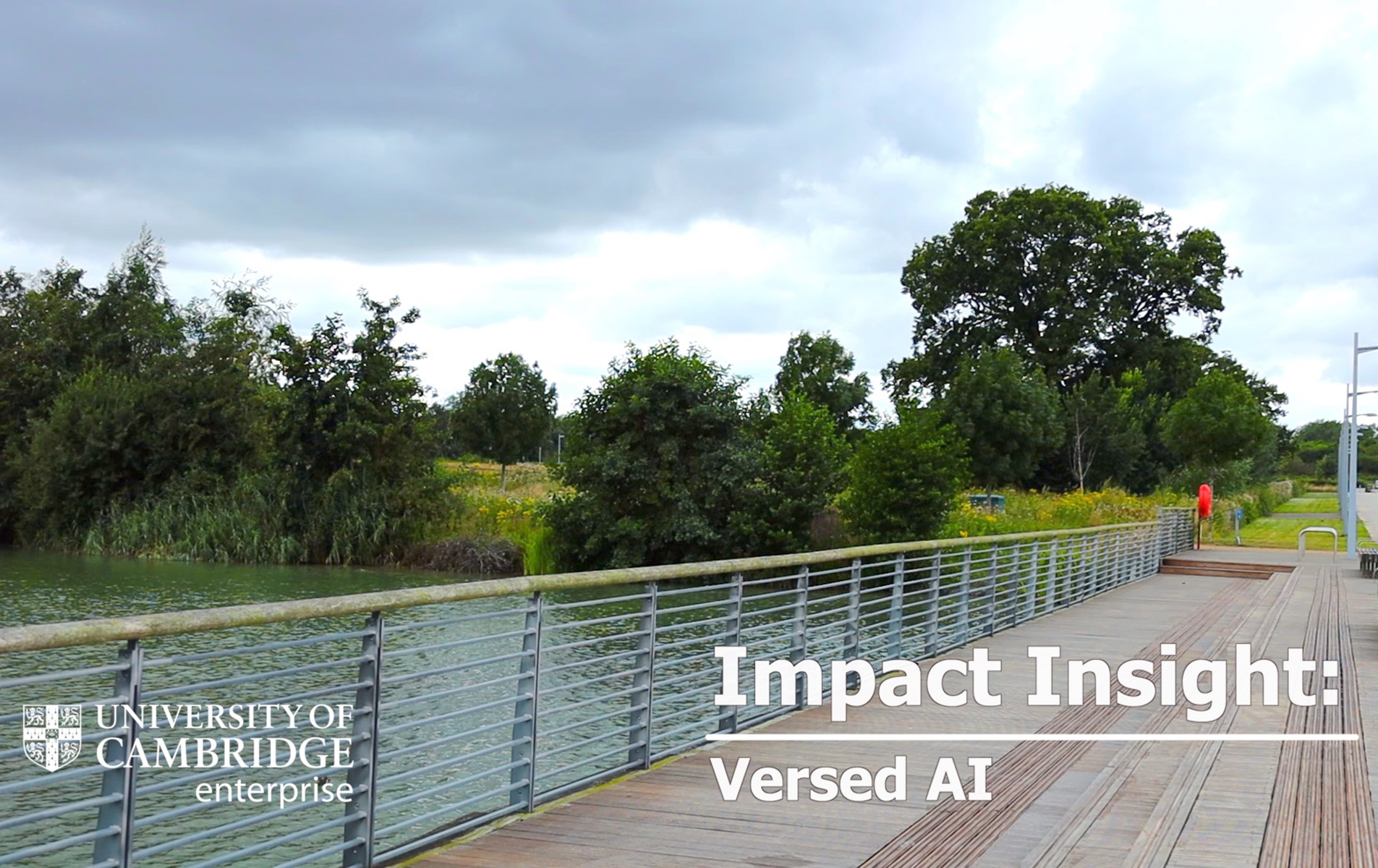Case study: Versed AI
Annual ReviewVersed AI is a University of Cambridge spin-out that applies its novel Natural Language Processing platform to help companies understand and manage potential risks in their multi-tier supply chains.
Versed AI was the winner of the Postdoc Business Plan Competition in 2019. It had started as a collaboration between Simon Baker, a postdoc at the Department of Theoretical and Applied Linguistics and now CTO of Versed AI, and a PhD student at the Institute for Manufacturing in the Department of Engineering at the University.
Managing risks in the supply chain
Companies keep very close tabs on their suppliers because disruptions can be expensive, both financially and reputationally, but companies are often unaware of risks posed by their suppliers’ suppliers. What if a second-tier supplier operates in an unethical or illegal manner? It’s a blind spot in which serious risks can hide.
This is the problem Simon Baker, a postdoctoral researcher in the University’s Language Technology Lab, set out to tackle. Teaming up with Pascal Wichmann, a PhD student at the Department of Engineering, the two developed a technology based on Natural Language Processing and Machine Learning that could burrow through millions of documents to reveal relationships among organisations, companies, products, and people. Uncovering these otherwise invisible relationships can expose potential sources of supply chain disruption, highlight risk concentrations, and help companies comply with modern slavery legislation.
Winners of the Postdoc Business Plan Competition 2019
In 2019, the two entered their technology in the Postdoc Business Plan Competition, now named in honour of the late Chris Abell, which is run annually by Cambridge Enterprise and the Entrepreneurial Postdocs of Cambridge. Their business was named Versed AI. To be ‘well versed’ implies having acquired expertise, which mirrors the capabilities of the technology to ingest a large amount of data and derive knowledge from it. ‘Versed’ also speaks to text, which is apt given the core technology is Natural Language Processing. Versed AI’s plan won over the judges, taking first prize and a £20,000 investment.

Versed AI’s technology applied
Supply chain disruptions are hugely costly to companies. A 2020 report by McKinsey estimated that, over the course of a decade, companies can expect to lose 42% of a year’s net earnings to supply chain disruptions. In the corporate world, 81% of companies lack good supply chain visibility. This limited visibility is an even bigger problem for SMEs. Providing an effective, new way to cut these losses offers a huge commercial opportunity.
Mining millions of words in news articles, business reports, and social media posts, Versed AI’s technology maps out multi-tier supply chains, revealing patterns and shining light on missing links. These blind spots might appear in buyer-supplier relationships, products and services, or manufacturing locations. This allows Versed AI to provide deep and actionable insights into supply chain sub-tiers, permitting companies to monitor, manage, and mitigate risk in a way that was never possible before.
Recent successes
Over the past three years, Versed AI has built on its victory in the Postdoc Business Plan Competition, winning a Y Combinator Startup grant and two grants from Innovate UK. In 2020, the spin-out was a winner of the London Business School Hackathon, a connection that came through co-founder and CEO Fenella Boyle. An enquiry from BT’s chief procurement officer led to a major contract with BT Sourced.
In 2021, Cambridge Enterprise was a cornerstone investor in a £1.2 million funding round for Versed AI, and in June the company took on its first full time employee. The staff team has since grown to 19.
Annual Review 2021
The Versed AI case study is featured in our Annual Review 2021. Learn more about some of the exciting projects we have been working on and our financial performance for 2020-21.





